Can Dogs Eat Corn?
06.02.2021.
If you ever read the label on the back of your dog’s food, you might have noticed that some brands include corn. There is a lot of information and misinformation flying around, and it is easy to get confused about whether or not dogs can have corn. Not only is it safe for dogs to eat corn, but it can also offer some health and dietary benefits. Here is what you need to know about dogs eating corn.
Can dogs eat corn?
Yes. Corn is an excellent source of several vital nutrients. It can be a part of a well-balanced dog diet, along with other grains like wheat. Sometimes, manufacturers decide on a single source or multiple sources, but corn is relatively popular because it is cheap.
Dog owners often think corn is just a filler in dog food, and its main goal is to give bulk to the food. That is not true, and scientists have proven that corn has excellent nutritional value. However, there is a huge difference between introducing corn as a part of your dog’s industrial-prepared meal and giving them corn you prepared at home. There are some things you should know before you decide to feed your dog corn.
Choosing the right food for your puppy is important. Many dog owners ask for a recommendation, and here is an article that can help you make that decision - Best puppy food.
How to safely give your dog corn?
If you talked to your vet, and the vet told you it is safe for your dog to eat corn, only then can you give your dog corn. It is not a good idea to introduce new things in your dog’s food before consulting a vet. There are safe ways to introduce this healthy grain in your dog’s diet; just remember - no spices.
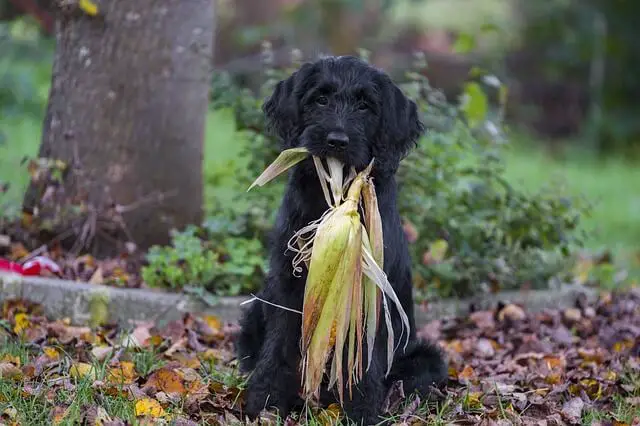
Cooked corn
The safest way to give your dog corn is by cooking the kernels. Make sure you removed the cob, and do not add any salt or butter while cooking it. You can add it to your dog’s usual meal or give it to them as an occasional treat.
Corn on the cob
This might seem like a good idea, but corn on the cob is the worst way of feeding your dog corn. The cob is not edible, and dogs cannot digest it. Cob can cause intestinal blockage, and it presents a choking hazard. Make sure you remove kernels from the cob before you give them to your dog.
Popcorn
Yes, popcorn can be safe for dogs, but only if they are unsalted and with no butter. This is our favorite movie time snack, and chances are, your dog will want to share some with you. You can give popcorn to your dog if they are air-popped and with no spices. You can read more about dogs and popcorn here - Is Popcorn Safe For Dogs?
Is it good for my dog?
Introducing something in your dog’s diet that offers them no significant benefits is not the best idea. You can give your dog different treats they will love and will have great nutritional value. Luckily, corn offers plenty of benefits. Here are the best nutrients found in corn;
- Antioxidants - Corn is an excellent antioxidant. It helps protect cells against free radicals and boosts the immune system.
- Fiber - Dietary fiber is essential for a well-balanced diet. It is especially good for dogs with diarrhea because it adds bulk to the stool and soaks up fluids.
- Protein - Proteins are building blocks of amino acids, and they are vital in building and repairing all tissue.
- Carbohydrates - Carbohydrates, or carbs, get somewhat of a bad rep, but they are an essential energy source for dogs.
- Linoleic acid - Linoleic acid is an omega-6 fatty acid that cannot be produced by dogs. It helps keep their skin and coat healthy, and it boosts the immune system.
Dogs would love to eat anything we are eating, and sometimes, that is a tomato. If you ever wondered, “Can dogs eat tomatoes?” here is an article that can help you with that - Are tomatoes safe for dogs?
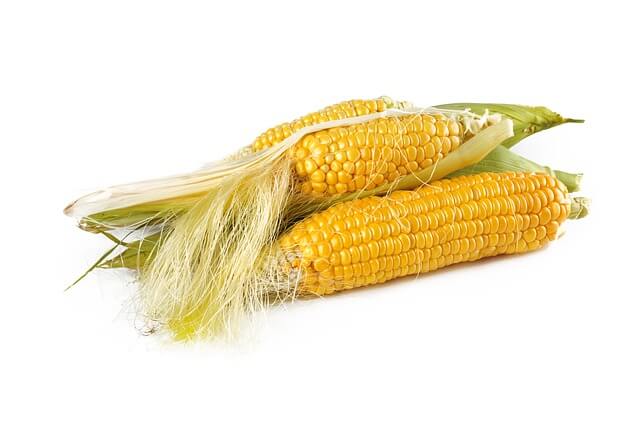
Can corn be bad for dogs?
There are some rare cases where dogs should avoid eating corn. Some dogs can have corn allergies. This is not a common occurrence; in fact, less than 1% of dogs are sensitive or allergic to corn. Before deciding on corn in your dog’s diet, make sure they are not allergic.
The other thing you need to be careful about is choking. Larger dogs won’t have a problem with that, but smaller dogs might. Even small kernels can block a small dog’s airway, so make sure you keep an eye on your dog eating corn.
Corn on the cob is a serious problem. You should never let your dog eat the cob part, and if that happens, you should treat it as an emergency. Dogs cannot digest the cob, and most likely, it will cause them distress. If you think your dog got ahold of corn on the cob, keep an eye on for:
- Lethargy
- Diarrhea
- Pain
- Vomiting
- Lack of appetite
- Constipation
If something like this happens, call your vet immediately and let them know you will be on your way. If the cob is not lodged, the vet might want to induce vomiting, and in worst-case scenarios, an endoscopic surgery might be the only solution.
World Dog Finder team

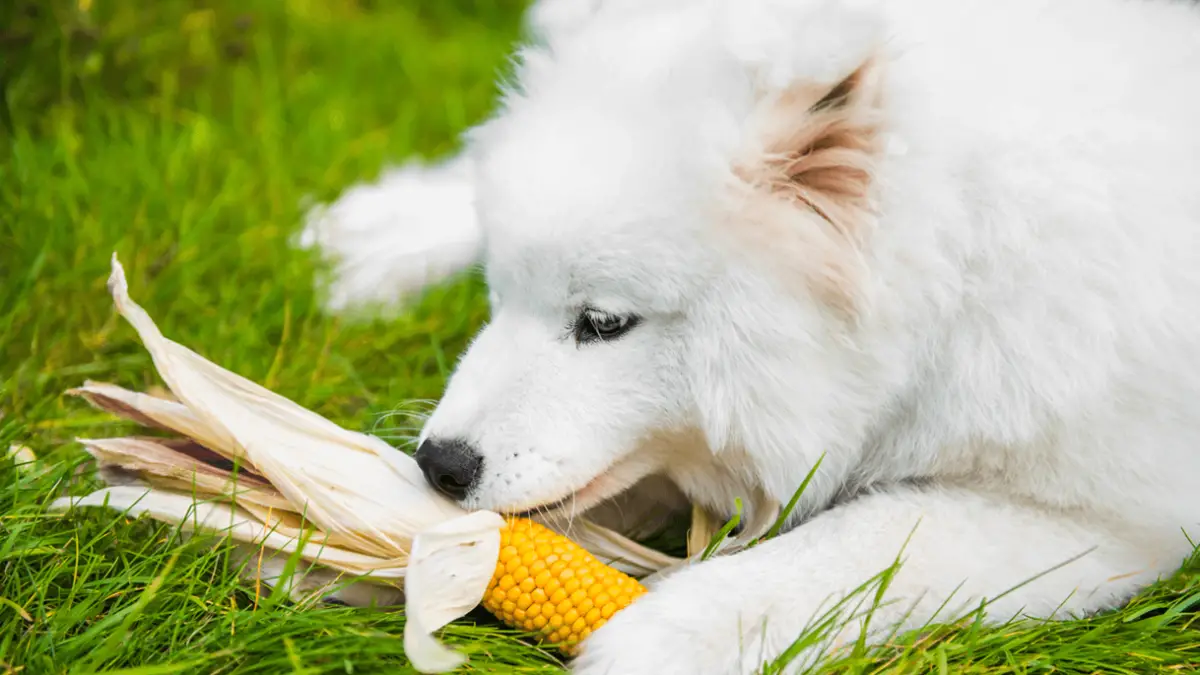

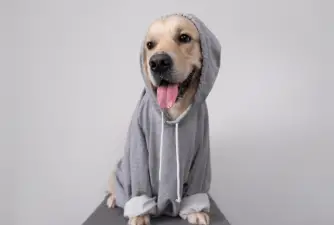
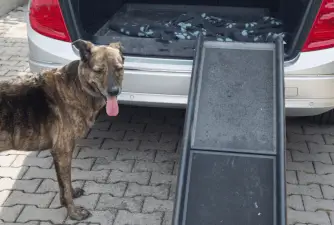
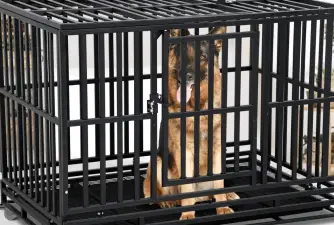

Share